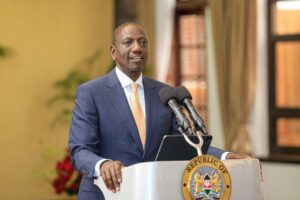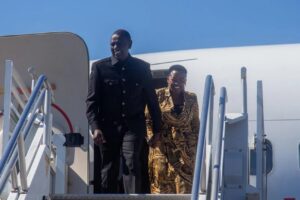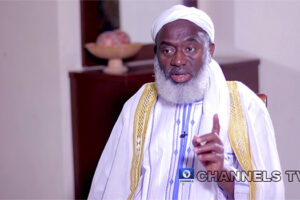
Nairobi — The High Court’s decision in Donald Kipkorir v. Muthaiga Country Club has set a powerful precedent, affirming that even private entities must operate within the bounds of the Constitution while exercising access restrictions.
In a ruling delivered on November 7, Justice Chacha Mwita held that Muthaiga Country Club (MCC) violated prominent lawyer Donald Kipkorir’s constitutional rights when it denied him entry despite his valid invitation by a member.
The court awarded Kipkorir Sh1 million in damages as “appropriate relief” for violations of his rights under Article 23(3) of the Constitution.
“The essence of appropriate relief is to enforce the Constitution and ensure that rights enshrined in the Bill of Rights are protected and enforced,” the court stated.
Keep up with the latest headlines on WhatsApp | LinkedIn
Justice Mwita emphasized that while private clubs may reserve the right of admission, that discretion must still align with constitutional principles, particularly human dignity and fair administrative action.
The court found that Muthaiga Country Club acted unlawfully and discriminatorily when it blocked Kipkorir’s entry on what he termed “spurious grounds.”
“A declaration is hereby issued that the decision by Muthaiga Country Club to deny the petitioner entry on 9th August 2024 violated his rights to fair administrative action and human dignity guaranteed under Articles 47 and 28 of the Constitution,” Justice Mwita ruled.
The judgment reaffirmed that constitutional rights bind all persons — not just the State, meaning private entities can also be held accountable for infringing fundamental rights.
Citing Articles 19 and 20, the court emphasized that the Bill of Rights applies horizontally, governing not only relations between citizens and the State but also between private individuals and organizations.
“The respondents, like everybody else, are bound by constitutional principles to respect, uphold, and defend the Constitution, including human rights guaranteed in the Bill of Rights,” the judge noted.
Implications for private clubs and associations
The ruling makes clear that private membership clubs, professional associations, and corporations must ensure their internal rules, disciplinary actions, and decisions conform to constitutional values. Their bylaws cannot override rights guaranteed under the Constitution.
A key basis of the judgment was Article 47, which guarantees every person the right to fair administrative action that is “lawful, reasonable, and procedurally fair.”
The court found that MCC’s decision to bar Kipkorir — despite his valid invitation — failed this constitutional test.
“The respondents have not demonstrated a lawful or reasonable basis for denying the petitioner entry despite the invitation. Denying him entry without explanation was procedurally unfair,” the court ruled.
Under Article 28, every person has an inherent right to dignity, which must be respected and protected.
The court determined that MCC violated this right when it turned away Kipkorir without explanation.
“The petitioner had taken the trouble to attend a meeting at the club on invitation, only to be turned away for unexplained reasons. The respondents’ action failed to respect his dignity and humiliated him, piercing the core of this right,” Justice Mwita observed.
The judge reiterated that human dignity is foundational to the Bill of Rights and may only be limited under the narrow circumstances outlined in Article 24.
While Kipkorir alleged discrimination on racial or ethnic grounds, the court found no evidence to support the claim.
Nonetheless, the judge clarified that a violation of constitutional rights can still occur even without proof of discrimination, particularly where fairness and dignity are compromised.
Sign up for free AllAfrica Newsletters
Get the latest in African news delivered straight to your inbox
Success!
Almost finished…
We need to confirm your email address.
To complete the process, please follow the instructions in the email we just sent you.
Error!
There was a problem processing your submission. Please try again later.
In determining relief, the court invoked Article 23(3), granting what it termed “appropriate and reasonable” compensation of Sh1 million, against the Sh10 million sought.
“A declaration alone is not enough where humiliation and indignity have occurred,” the court stated.
Broader legal significance
The ruling carries far-reaching implications for how private organizations and associations in Kenya exercise their administrative powers.
It affirms that decisions involving access, membership, suspension, or expulsion must adhere to constitutional standards of fairness, reasonableness, and respect for dignity.
Justice Mwita’s judgment reinforces that constitutional values apply both vertically (to the State) and horizontally (to private actors).
“Any person, whether private or public, must ensure that their actions are lawful, reasonable, and procedurally fair,” the judge asserted.





